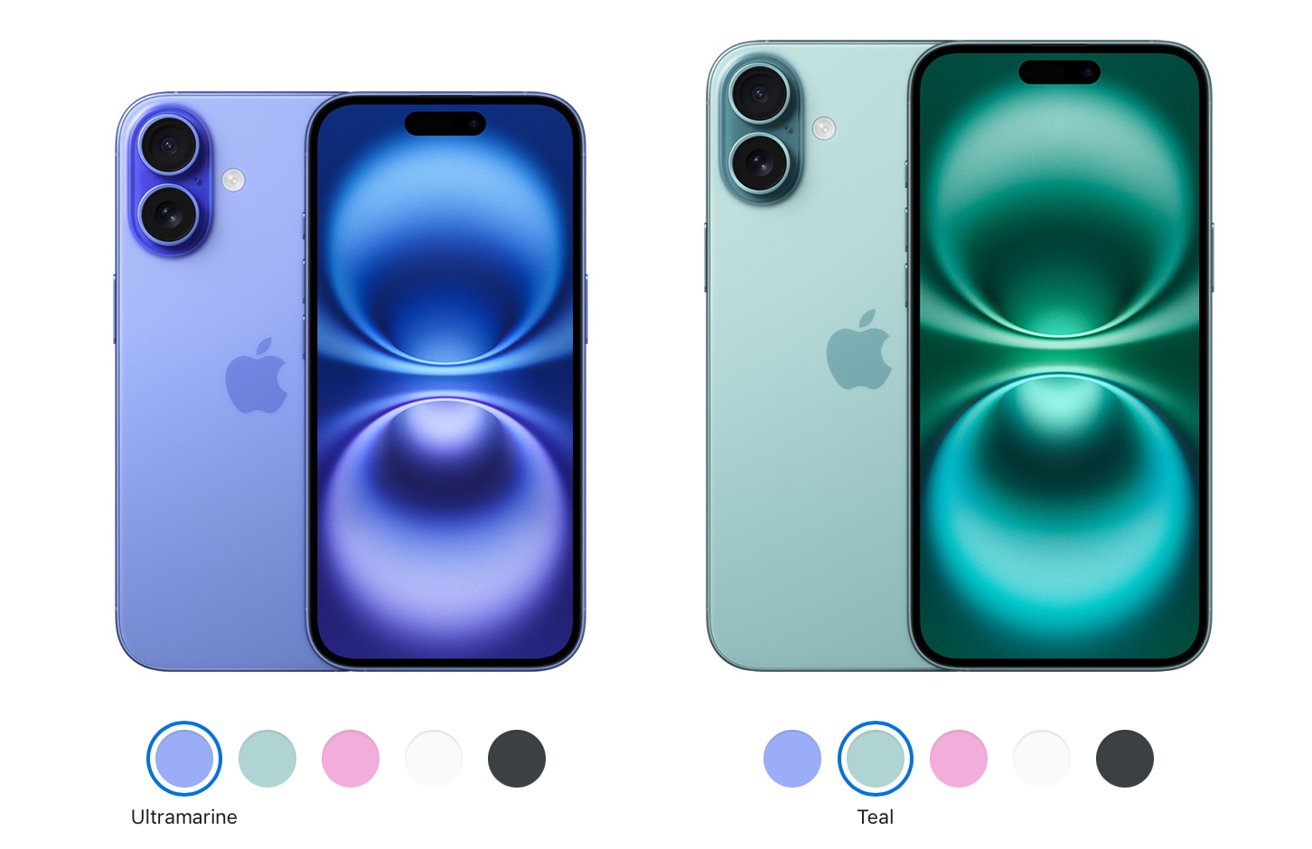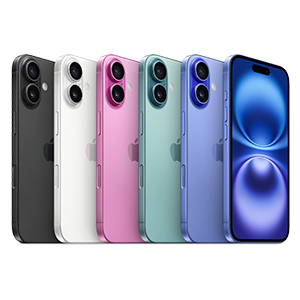Basing his analysis on slipping ship times from Apple's ordering web page, analyst Ming-Chi Kuo believes that Apple is seeing lower demand for the high-end iPhone 16 models and higher sales for the regular iPhone 16, along with the iPhone 16 Plus.
While these claims are only based on initial demand, Kuo claims Apple sold around 37 million units on the new iPhone's first weekend. He says that this is down 12.7 percent from the iPhone 15 lineup debut.
The iPhone 16 Plus, which starts at $899, is up 48 percent over the iPhone 15 Plus from last year, despite the entire new lineup retaining the same price points. The regular iPhone 16's initial sales are up 10 percent over the iPhone 15's debut weekend.
Meanwhile, the iPhone 16 Pro at a base price of $999 is down 27 percent compared to last year, while the Pro Max — which starts at $1199 — is down 16 percent, according to Kuo's compare. One factor that may be weighing into the debut ordering equation is the fact that all models will be getting the much-hyped Apple Intelligence features as they roll out over the next few months.
iPhone 16 first weekend pre-order analysis: estimated total sales of about 37 million units; Pro series demand lower than expectedhttps://t.co/GGAN9Yewx3
— (Ming-Chi Kuo) (@mingchikuo) September 15, 2024
The fact that one of the marquee features of iOS 18 will not be shipping with the new units but will roll out in stages over the remainder of 2024 and early 2025 may also be a factor. That said, the strong enthusiasm for the Plus model, along with the smaller reduction in the Pro Max's sales, shows that many early adopters still do prefer the larger-sized iPhones.
Kuo believes that Apple approximately doubled production on the initial iPhone 16 Pro Max model compared to the iPhone 15 Pro Max, preparing some six million units ahead of the debut. Apple tends not to discuss exact sales figures, and it is too early to tell if demand will continue in the current pattern, or change as the new iPhones become available in stores.
The upcoming holiday season is likely to play a big role in early demand for all of the new iPhone models. The mix of top sellers typically change by the end of Apple's fiscal first quarter.
 Charles Martin
Charles Martin








-m.jpg)






 Brian Patterson
Brian Patterson



 Malcolm Owen
Malcolm Owen
 William Gallagher
William Gallagher
 Christine McKee
Christine McKee
 Marko Zivkovic
Marko Zivkovic









10 Comments
No way! Lol. In no way is the 16 outselling the pros that goes against all previous years actual selling statistics. All of a sudden everybody is drastically changing their buying habits? That’s ridiculous. Kuo is not right this last year or two he is out to get Apple for some reason. Smh at this report. Something is blatantly wrong.
I think it’s pretty insane that Apple still puts a 60 Hz screen on a $900 iPhone 16 and I believe this demonstrates how desperately they are trying to extract more value out of the iPhone Pro.
People are starting to become fed up paying € 1500 or so for a Pro phone with enough storage (excluding insurance and cover). It’s a commodity device.
I happen to own both the 15 and the 15 Pro (with the former being for work). The screen sucks on the 15 (120 Hz does a lot for the perception of speed), but for the rest it feels like the same device, unless you are focused on prosumer videography.
Typical Kuo: pulling baseless numbers out of his ass. When you consider that Apple shares no sales date with anyone, you have to ask: how could he possibly have accurate info for the first weekend sales on such an immediate basis? His answer? Two sources. First, "the supply chain" told him, as if it would know Apple's sales numbers in real time and share them with Kuo. How stupid would you have to be to believe that? And his second "reliable" source is watching the delivery dates on Apple's own website. He assumes, without any basis, that models with delivery dates slipping to later in the calendar are selling well and models for which dates aren't slipping as much are underperforming. Of course, you can't assume any of that without knowing how many units Apple manufactured to meet expected demand. And Kuo doesn't know that.
Then Kuo goes on to embarrass himself further with the insane (and baseless) assumption that the 16 models aren't selling well because the AI benefits aren't available at launch, Translation; the typical mainstream iPhone buyer is sitting at home thinking, "Hmmm, I was planning to buy an iPhone 16 but I've decided not to because the AI features aren't coming til later this year and into 2025." Please.
I do believe there ARE reasons that the 16 models ultimately could underperform since the improvements over the 15 models aren't all that compelling, And at least the 15 models had a design refrresh going for them, too. But no one knows how this is going to go yet, and any guesses you'd like to take will be at least as valid as Kuo's.
These “the new iPhones are not selling as well as last year” stories repeat each year. They rarely seem to end up being accurate.
As the regular iPhone gets upgraded annually, at some point it achieves a level of performance that makes opting for one of the pro variants hard for many to justify. As to the impact on sales, Apple always plays a long game. The rollout of AI-like features is going to happen over several months and isn't going to start for more than a month. Expecting a frenzy right now to acquire a model able to do AI is not logical. Once the new features are up and running, then it would be reasonable to see a boost in iPhone sales but that boost is not certain to impact the pro models. The regular iPhone can also handle AI and they're decent enough products able to meet the needs of many.
Besides, regardless if AI capability will boost sales, there are so many older iPhones in use that consumers are sure to be looking to replace them at some point soon, I would guess. For instance, there are millions of iPhone 11s in use and in the next year or two their owners are likely to explore getting a new phone. That they have enjoyed five-plus years of use out of their iPhones makes it probable that those customers will buy another one. The notion of iPhones as a product you replace annually may well be a thing of the past but Apple still has a robust business model. Even if there is a shift towards plain old iPhones, they are not cheap products and Apple still enjoys a healthy profit margin selling them in the millions. Combine that with expanding revenue from services and rumours of Apple losing ground are greatly exaggerated. Having a pleased massive installed base is never a bad thing.